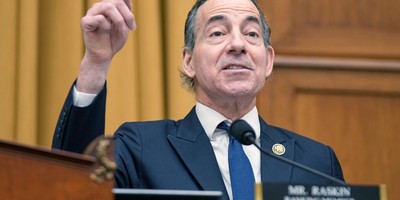As a candidate in 2008, Barack Obama declared his support for green energy development. "For the sake of our economy, our security and the future of our planet," he said, "we must end the age of oil in our time."
As president, Obama called for putting 1 million electric cars on the road by 2015. He backed that call with more than $5 billion in taxpayer subsidies to jump-start the electric car industry. The president also put in place a program that gave $7,500 to anyone who would actually buy an electric car. Despite that support, sales were minimal in 2011, so his new budget proposes hiking that subsidy to $10,000 a car.
Voters are skeptical. Just 29 percent favor the $10,000 subsidies, while 58 percent are opposed. When told that reaching the goal of a million electric cars on the road could cost taxpayers $10 billion in subsidies, opposition reaches 65 percent. Voters are looking to reduce federal spending, not increase it.
But there's an important detail suggesting the president's plan could be an even bigger loser in the court of public opinion. The CEO of General Motors said recently that the average income of those buying Chevy's electric Volt is approximately $170,000 a year. That puts electric car buyers in the same league as BMW buyers or those who drive a Mercedes-Benz. It may not be the 1 percent, but it qualifies in the top 7 percent of all American earners. That's a more elite group than those who buy Cadillacs or Lexus cars.
Recommended
Such trickle-down environmentalism is hardly appealing to voters. Seventy-three percent believe those who earn $150,000 or more should pay the full cost of the car themselves. Only 13 percent think a government subsidy is appropriate.
While agreeing with the president on the importance of reducing our dependence on foreign oil, voters don't see providing subsidies to wealthy electric car buyers as the way to reach that goal. Instead, 75 percent say that the United States should be doing more to develop its own gas and oil resources.Most (57 percent) think the best way to do that is through free-market competition. Only 27 percent believe government subsidies and regulations represent a better approach.
The president views taxpayer subsidies for electric cars as an investment in "clean energy technology -- an investment that will strengthen our security, protect our planet and create countless new jobs for our people." But Americans are justifiably skeptical of political investments. Only 11 percent believe that government officials are better than private investors at seeing the potential benefits of new technologies. Seventy-one percent think investors do a better job. If private investors don't see the value and pass on an investment, 64 percent think it's likely any government investment will be a waste of money.
One reason for this is that investors are most interested in producing things that consumers will buy. Political investments are more about headlines. When it comes to buying electric cars, the headlines may be about going green, but the reality is most Americans say they'll be motivated to go electric for a far more mundane reason: When the price of gas gets too high, they'll switch.

























Join the conversation as a VIP Member